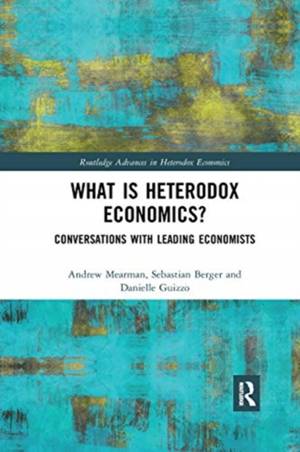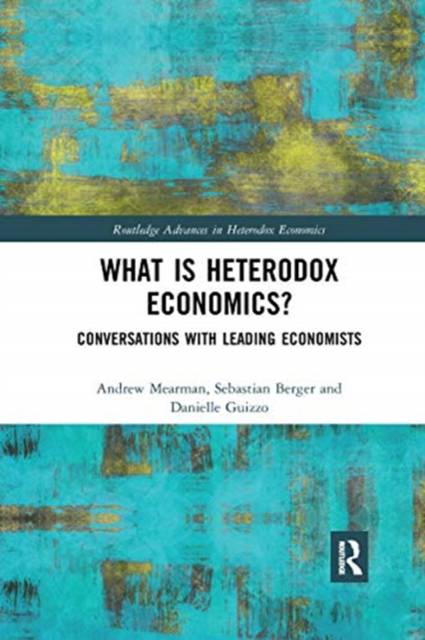
- Retrait gratuit dans votre magasin Club
- 7.000.000 titres dans notre catalogue
- Payer en toute sécurité
- Toujours un magasin près de chez vous
- Retrait gratuit dans votre magasin Club
- 7.000.000 titres dans notre catalogue
- Payer en toute sécurité
- Toujours un magasin près de chez vous
What Is Heterodox Economics?
Conversations with Leading Economists
Andrew Mearman, Sebastian Berger, Danielle GuizzoDescription
Since the Global Financial Crisis, economics has been under greater public scrutiny, revealing a crisis in the discipline. This represented a potential turning point on how economics should be thought and taught. Heterodox economics has played a prominent role in these discussions revolving around new economics thinking and pluralism in economics. Yet, its identity, aspirations, and pedagogy remain underexplored, contested, and somewhat opaque.
This volume brings together sixteen interviews with leading economists to understand what heterodox economics is. How and why does an economist become heterodox? In which way do heterodox economists see themselves as 'different' from mainstream economics? The interviews shed light on what problems heterodox economists perceive in the mainstream; elucidate the different contexts under which they operate in higher education; and provide insights on their ontology and methodology. The reader will also find answers to the following questions about the nature and state of heterodox economics: Do heterodox economists have particular intellectual journeys, motives and aspirations? Is this reflected in their teaching practices and strategies to achieve social change? What is the relation between heterodox economics and the humanities and arts?
Appealing to a diverse audience, including philosophers, sociologists and historians of economic thought, the book will be of great interest to anyone keen to find out more about the internal discussions in the economics discipline.
Spécifications
Parties prenantes
- Auteur(s) :
- Editeur:
Contenu
- Nombre de pages :
- 314
- Langue:
- Anglais
- Collection :
Caractéristiques
- EAN:
- 9780367729981
- Date de parution :
- 18-12-20
- Format:
- Livre broché
- Format numérique:
- Trade paperback (VS)
- Dimensions :
- 156 mm x 233 mm
- Poids :
- 609 g







